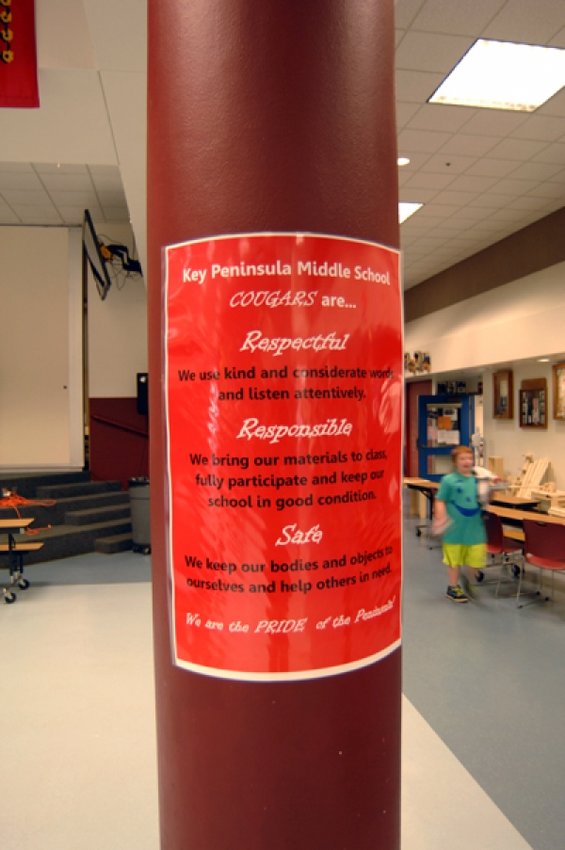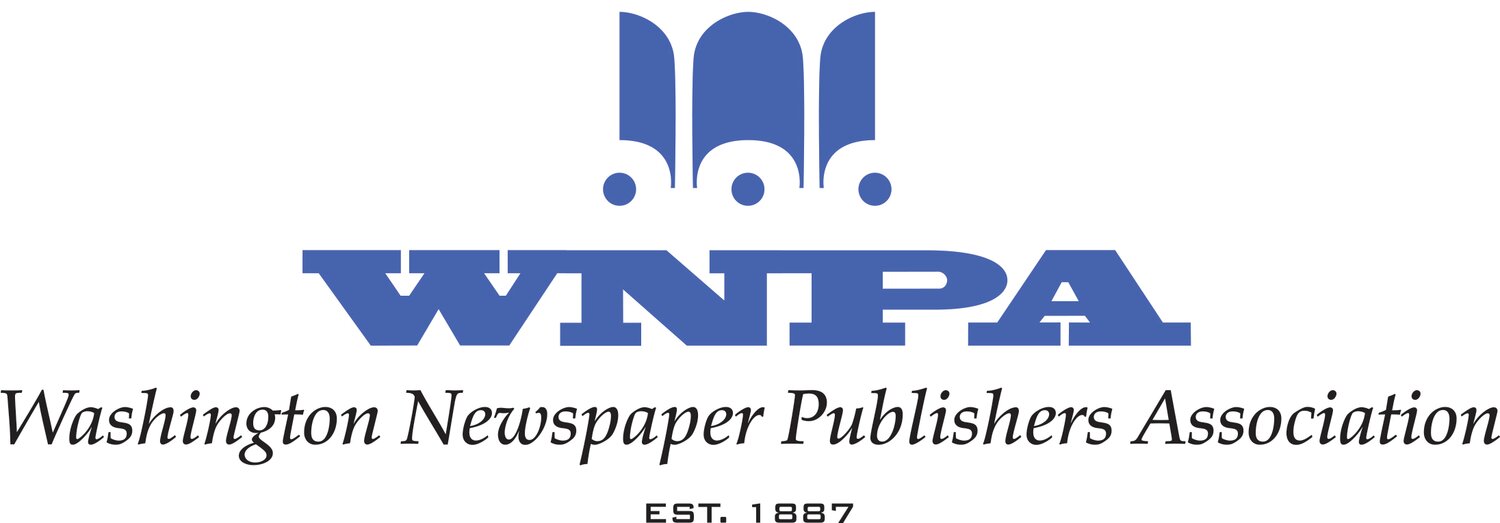 Key Peninsula Middle School uses a program to reinforce good behavior and spark friendships on campus. Photo by Scott Turner, KP News
Key Peninsula Middle School uses a program to reinforce good behavior and spark friendships on campus. Photo by Scott Turner, KP News
Students at Key Peninsula Middle School are earning points for good behavior under a new system introduced two years ago by Assistant Principal Andrea Bowman.
It’s called Positive Behavior Intervention Supports –– PBIS for short.
As eighth grader Leyla Van Der Bank, 12, explained, “If the teachers see something good happening –– like picking up our trash or walking instead of running or listening when we’re talking with someone –– then we get points that can be saved up and turned in for prizes at the store.”
Basically there are three rules for the students to follow, Bowman said.
Kiely Newsom, 13, also in the eighth grade, put it simply: “Our three big school rules are to be respectful, responsible and safe.
“And our school is actually changing because kids are trying to follow the rules, so they’re being nicer to each other and more kind to the teachers and they’re being willing to help people,” she said
As an example, Newsom said she dropped her books in the hallway, “and a kid actually ran over and helped me pick my stuff up,” she said.
The three rules were chosen by the teachers and staff after they participated in a survey that showed what things the school was doing well, and what was missing, Bowman said.
“Rather than making a long list of things the kids can’t do, like ‘Don’t run’, we’re saying, ‘Please walk,’”she said.
“It’s a subtle difference but it’s significant because kids can visualize ‘Please walk,’ but they don’t know what to do instead of ‘don’t run.’
“We’re telling them what to do, not what not to do,” she said.
Any time a teacher or staff member sees a student doing something respectful, responsible or safe, the child gets a “Cougar Pride” ticket, “based on the specific behavior we’re focusing on for that week,” Bowman said. “We’re selling things in the Cougar Pride store that the kids can buy with their tickets.”
Bowman was quick to give a shout-out to the school’s PTSA, Franciscan Health System and Angel Guild for financial support.
PBIS also provides actual behavior data that lets the school intervene in cases where kids seem to be having trouble of falling behind in earning rewards tickets.
“We might place a kid who’s struggling in a club or a group, or maybe just an after-school sport with a student support team,” Bowman explained.
Serious problems call for specific behavior plans.
“Most kids who’re having struggles academically are also having behavior problems and vice versa,” she said.
There’s also less chance a student will be suspended or expelled. “Our old system was a ‘kick ‘em out’ model,” Bowman said. “This new PBIS way is focused on creating a safe school where kids feel safe and respected and recognized.”
And, according to the students themselves, it seems to be working –– and not just because of the rewards.
“I think kids are actually doing it because they’re coming from the heart,” Newsom said. “Because they actually want to try to be better about themselves. I think it’s a success.”






